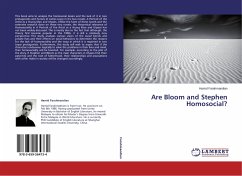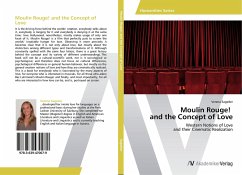
Their Synaptic Selves
Memory and Language in Joyce and Beckett
Versandkostenfrei!
Versandfertig in 1-2 Wochen
39,99 €
inkl. MwSt.

PAYBACK Punkte
20 °P sammeln!
Revision with unchanged content. Memory is not a thing that we call upon, it is an event that we experience. Each time we speak, we do not access a memory, but create a new memory - we compose a new memory event. Our memory is a constant decomposition and recomposition process, and this process, in many ways, is who we are. Our everyday communication is governed by a complex cognitive process so innate in our neurological composition that we rarely pause to consider it. Their Synaptic Selves examines the cognitive shifts that memory events force in our everyday language. It explores how author...
Revision with unchanged content. Memory is not a thing that we call upon, it is an event that we experience. Each time we speak, we do not access a memory, but create a new memory - we compose a new memory event. Our memory is a constant decomposition and recomposition process, and this process, in many ways, is who we are. Our everyday communication is governed by a complex cognitive process so innate in our neurological composition that we rarely pause to consider it. Their Synaptic Selves examines the cognitive shifts that memory events force in our everyday language. It explores how authors like Samuel Beckett and James Joyce interpret these types of events, specifically discussing how spatialization and mapping affect memory. For these authors, it is the failure of memory (and its linguistic manifestation) that teaches us how we think. By looking at these moments of failure or slippage in light of philosophers like Henri Bergson and Gilles Deleuze we can come to understand more fully the complex and elusive approaches through which these authors deal with memory and its role in language. Only then can we begin to examine the way we actually use language and read texts today.












